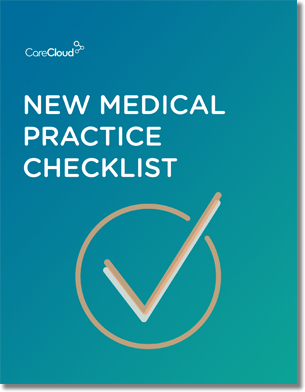The word ‘free’ is alluring. It’s the same reason grandma collected newspaper coupons and why you probably don’t mind enduring a dirty fingernail for the chance to win the stack of cash pictured on tawdry corner store scratch-off.
But free EHRs don’t represent the kind of no-strings-attached reward we’re alluding to above. The appeal can be strong, but hidden expenses, heightened risk and unforeseen liabilities can cost you just as much as any web-based EHR, and you’re probably not getting the same level of technology.
See below for a demystified view of free EHRs.
The Revenue Problem
‘Free’ is not always a profitable business model, so what are free EHR providers doing to not go out of business or have to switch to pay models in the near future?
Anyone in the health IT space knows investor money is not infinite, meaning you’ll sooner or later be forced to turn a profit – or fail, naturally. And vendors need money to function, not only for the sake of their operations but because software becomes outdated nearly overnight.
New features need to be added, others need to be repaired – meaning the expenses in human capital alone are hefty. Can ads and data drive sufficient revenue?
Users sit in front of their EHRs up to eight hours a day, which means they can become desensitized to small, unobtrusive ads rather quickly. If free EHR providers begin designating more space for ads, how turned off will users be?
There are also rumors that a number of the more popular free EHRs will consider selling patient profiling power to pharmaceutical companies, through tools similar to Facebook’s Graph Search feature.
Now, if increased advertising and sketchy use of patient data is enough to persuade you to turn elsewhere, there’s no way they can return the time and money you lost on training and implementing the system, thereby making your free EHR a rather costly investment.
The Little Things Add Up
We can begin with training here, which is not included in any free EHR plan. And consultants don’t come cheap either – $1,500 – $4,000 a day, depending on the size of your practice.
And considering that training will often take several weeks to get the full hang of the system’s functionality, you should probably have an airtight plan to maximize your group’s workflow.
Free solutions often have limited functionality as well, at least in their ‘free,’ bare-boned versions, and therefore have a tough time adapting to your practice’s workflow.
Furthermore, many free EHRs don’t have the ability to streamline note creation, which means no templates, no forms, and no menus. Think of the amount of time your practice is wasting – typing in diagnosis prescriptions, vitals, allergies, etc.
And you have to think of your patients as well, especially if the rights to patient data are up-in-the-air, so to speak. Do they feel comfortable knowing their doctor uses a free EHR?
Some free EHRs don’t offer doctors the ability to extract their data in the event of an emergency or a system switch, which could be a huge cost to your medical practice. Others take it a step further – they charge patients to use the patient portal, with part of the subscription fees going to the medical practice.
While this may work for some practices, do you think it’s a realistic business model for the industry at large?
The HIPAA Hiccup
One thing we’re not used to hearing about free EHRs, however, is that ad-based business models may not be HIPAA compliant. However, following the passing of the HIPAA omnibus final rule in January, pop up ads often associated with free EHRs may go beyond mere irritation.
The HIPAA updates impose new restrictions on marketing, requiring providers to obtain patient authorizations “for all treatment and healthcare operations communications where the covered entity receives financial remuneration for making the communications for a third party whose product or service is being marketed.”
In other words, you must inform patients that you’ll be receiving a financial benefit for sharing the third party’s information with the patient. And while popup EHR ads aren’t addressed by name, it’s exactly the kind of marketing HIPAA is referring to.
As a physician using a free EHR, you’re ‘communicating’ the produce or service in the popup ad without having patient authorization to do so. And since the EHR is free, you’re receiving a financial benefit.
Now imagine how much a free EHR will cost you if its revenue model gets you into legal trouble?

Do you know what you need when setting up a new medical practice?



